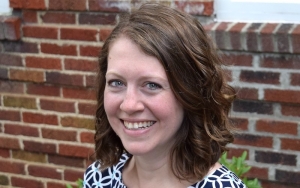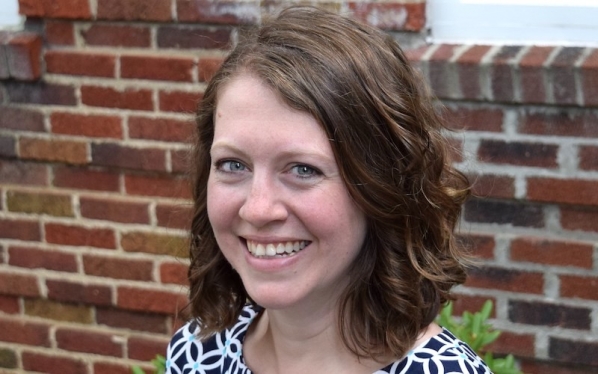Dr. Allison Fredette received her B.S. and M.A. degrees from West Virginia University, and her Ph.D. from the University of Florida. As an undergraduate student, she majored in History with a concentration in 9-12 social studies. As a graduate student, she began to focus her research on gender, marriage, and women’s rights in the nineteenth-century Upper South.
Dr. Fredette began teaching at App State in 2014 as an Adjunct Instructor and Lecturer. In recent years, she began to help the HEP program as an Academic Area Consultant for student teaching, through service on committees and outreach events, and through her innovative course "Teaching Controversial Issues in History."
In 2017, Dr. Fredette won the College of Arts & Sciences (CAS) Non-Tenure Track Teaching Excellence Award, which honors one NTT faculty member of CAS who has "demonstrated outstanding teaching as exhibited by a knowledge of and enthusiasm for the subject matter and an exceptional concern for student success."
Beginning in Fall 2019, she begins her tenure at App State as an Assistant Professor of History for History/Social Studies Education. [allisondfredette.com]
Why does history/social studies education matter?
Allison Fredette: History is absolutely vital in today’s world. We live in a constantly evolving, quickly changing, and fast-paced society, and it is so important that we understand how we got here. Studying history makes students better critical thinkers, more empathetic and globally minded citizens, and gives them a deeper knowledge of their own community. As historians, we all strive to tell the story of the past in new and original ways, contributing a little bit with our scholarship to that larger work. But as teachers, we can truly make a difference. In the classroom, we not only teach history, but we teach how history is made, how it is recorded and remembered, and by whom. Our students are our scholarship; they carry these histories into the future, hopefully sharing them as they move through the world.
What do you see as the most important issue facing public school educators in North Carolina and the U.S. today?
AF: I think the most important issue facing public school educators is the ability to delicately and knowledgeably lead students through the study of controversial issues in the classroom. Increasingly, teachers worry about introducing certain subjects into the classroom – whether it is about race, sexuality, gender identity, or current events. And yet, these topics are central to American life today. We would be doing our students a disservice if we did not give them space to discuss, debate, and learn about these issues from qualified instructors. After all, we cannot shield them from finding out about these issues; we will only prevent them from learning the full context and history of them.
What do you most enjoy about working with our student teachers?
AF: Our student teachers are incredibly enthusiastic and passionate about teaching history. As they progress through the program, I love getting to watch them translate that passion into action by learning the skills and tools necessary to become a teacher. I love watching them grow from students into educators and gain the confidence to lead a classroom. I also love engaging with them as fellow educators and learning from their newfound expertise. Student teachers are one my best resources for on-the-ground updates on the world of education.
How do you engage students with history here at App State?
AF: In my own classroom at App State, I try to engage students by making history as relatable and as interactive as possible. Every semester, I try to add activities to my syllabi that allow students to learn history beyond the traditional format. For example, in recent years, I have experimented with Reacting to the Past pedagogy, which allows students to learn history through elaborate simulations. In my women’s history class, students are transformed into a group of bohemians, suffragists, and labor activists meeting at a restaurant in Greenwich Village in 1913. I am also a member of a Humanities Council group here at App State called “Gaming the Classroom: Games and Gamification in Humanities Pedagogy and Research.” Beyond this, I consider it vital to diversify the types of histories we teach to make sure that all students can see themselves in the past.
Which skills are essential for teachers that are not usually discussed in college education-prep courses?
AF: Teaching is both a skill and a gift. As educators, we can give future teachers critical historical content and analytical skills. We can help them practice techniques to reach a variety of learners and to manage a classroom. But we cannot bestow upon future teachers the empathy, patience, and intellectual curiosity needed to become a fantastic teacher. This is something that teachers will need to have before they enter the classroom but also something they will need to spend their whole careers cultivating and maintaining.

